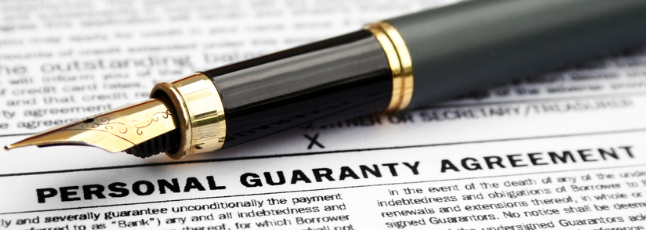
Personal Guarantee on a Merchant Account?
A Merchant Account Personal Guarantee is a commitment made by a business owner or merchant, promising to be personally liable for any outstanding debts or losses incurred through the merchant account. These losses are always caused by chargebacks incurred by the business through unhappy customers or clients. Business owners are financially responsible for these losses and the “Personal Guarantee” is the legal language in the “Merchant Account Service Agreement”, outlining this responsibility.
Understanding the personal guarantee on a merchant account is important for businesses that want to establish a reliable and secure payment processing system. Obtaining a merchant account is crucial for businesses, particularly for those that are involved in online ePayments. A merchant account allows you to accept digital/electronic payments, e.g. credit cards, debit cards, etc. In this way, it makes it easier for your customers to buy your products and services. One key aspect of obtaining a merchant account is signing the merchant agreement with the “Merchant Account Personal Guarantee”, outlining the “Chargeback Liability” of the signer. Read on to learn its significance, reasons why merchant account processors require it, and more.
Why Do Merchant Account Processors Ask for a Personal Guarantee?
The reasons why merchant account processors ask for a personal guarantee may vary from one merchant services provider to another. But generally, they include risk mitigation, limited business history, high-risk industries, and unfavorable credit profile.
Risk Mitigation: For merchant processors, providing payment processing services involves certain risks, e.g. fraud, chargebacks, non-payment, etc. A personal guarantee adds an extra layer of protection to help the processor make sure it can recover losses in case the business is unable to meet its financial obligations. Here is some useful information on preventing chargebacks.
Limited Business History: New businesses or those with limited operating history typically don’t have sufficient creditworthiness to prove their financial stability to merchant processors. A personal guarantee holds the guarantor personally responsible for any debts. In this way, it helps offset the lack of business history.
High-Risk Industries: Many industries are considered high-risk by payment processors. These include (but not limited to) pharmaceuticals, travel, debt collection, online dating, fantasy sports, etc. In these sectors, chargeback ratios and potential financial liabilities are relatively high. Because of these factors, merchant account processors request a personal guarantee as a preventive measure.
Unfavorable Credit Profile: Merchant Account Personal Guarantee reassures the payment processor of the merchant’s commitment to repay debts. A business owner with a poor personal credit score or a history of bankruptcy might find it difficult to obtain a merchant account without a personal guarantee.
Is a Personal Guarantee on a Merchant Account Legally Binding?
Yes, a personal guarantee on a merchant account is legally binding. When a business owner signs a personal guarantee agreement, they willingly accept the responsibility for any debts or liabilities incurred through the merchant account. This legally binding contract ensures that the guarantor can be pursued for repayment if the business defaults on its financial obligations.
It is crucial for business owners providing the Personal Guarantee on a Merchant Account to carefully review and understand the terms of the agreement before signing. Seeking legal advice can also be beneficial to ensure complete comprehension and awareness of the potential liabilities.
Does Personal Guarantee Protect the Merchant Processor?
Yes, a personal guarantee offers significant protection to the merchant processor in various ways. These include the following:
Increased Confidence: The personal guarantee reassures the merchant processor that the business owner is personally invested in their business’s success and will take steps to prevent any financial losses.
Debt Recovery: If the business cannot meet its financial obligations or becomes bankrupt, the merchant processor can pursue the guarantor to recover outstanding debts. In this way, the merchant processor can reduce the risk of financial losses.
Mitigating Chargebacks: Chargebacks are one of the primary concerns for merchant processors. A Merchant Account Personal Guarantee can serve as an incentive for the business to maintain excellent customer service and mitigate chargebacks. More information on Chargeback Mitigation.
Compliance and Reputation: Merchant processors must comply with industry regulations and standards. A personal guarantee helps ensure that businesses operate responsibly and can maintain a positive reputation within the payment processing ecosystem.
Final Thoughts on a Merchant Account Personal Guarantee
The Merchant Account Personal Guarantee is a crucial aspect of obtaining a reliable and secure payment processing system. While it may seem like an additional burden, it provides benefits to both the business owner and the merchant processor. Choosing a reputable merchant processor can help simplify the personal guarantee process and ensure a hassle-free experience for business owners. By understanding the implications of a personal guarantee and selecting the right merchant services provider, businesses can establish a solid foundation for financial stability and growth.
POST UPDATED: August 17, 2023
About The Author

Mark Sands, co-founder of High Risk Merchant Account LLC, an authoritative expert in the high risk merchant account space. Mark has decades of experience in the payment industry & enjoys writing on entrepreneurial related topics.

